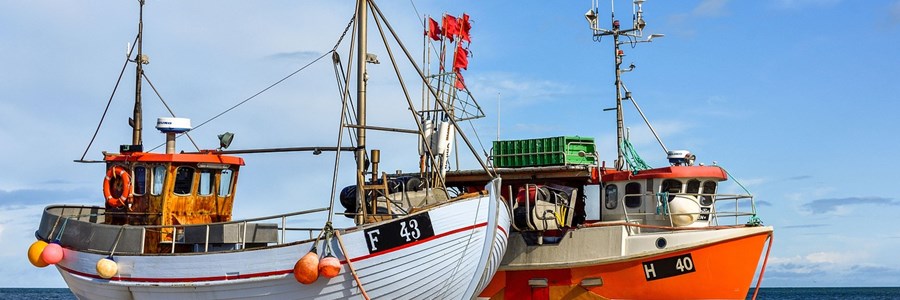Baltic fishermen in troubled waters

Today, after long hours of discussion in Luxembourg, EU Fisheries Ministers reached an agreement on the catch limits for 2022 for the ten main commercial stocks in the Baltic Sea. Despite the huge quota cuts in the last years for key species such as cod and herring in certain areas, the poor environmental status of the Baltic Sea, and not overfishing, is affecting the sustainability of these stocks. Nevertheless, Ministers have decided to further reduce fishing opportunities for Western and Central herring as well as for Western cod. On the positive side, the Council has agreed to increase fishing opportunities for plaice, sprat, Bothnian herring and Gulf of Finland salmon. Despite these increases, the reality is that 2022 will still remain an extremely challenging year for the Baltic fishers.
The Council of Ministers agreed to cut by half the Total Allowable Catches (TAC) for herring in the Western part of the Baltic Sea and can only be caught now as by-catch. In the Central Baltic, the TAC was cut by 45%. Given the lack of progress in cod stocks, the Council has maintained a TAC only for by-catches, slashing by 88% the quota for Western cod. The catch limits for Salmon in the Main Basin have been reduced by 32%, although the TAC for salmon stocks in the Gulf of Finland saw a slight increase.
Despite the scientific advice recommending a quota increase for plaice and sprat, the European Commission proposed to maintain the TAC level unchanged. Ministers deviated from this approach and decided to increase the quota by 25% and 13% respectively. Peter Breckling, Deutscher Fischerei Verband (DFV), declared: “We welcome this Council’s decision which balances the socio-economic needs of our fishermen with the long-term sustainability of these fish stocks. More selective trawl gears are available which can certainly mitigate the impact on other species such as cod or herring. Plaice and sprat are now vital for the survivability of our fishing companies”.
Europêche stresses that due to the significant reduction of the main target species Western cod and Western herring quota for several years, fishing companies and local associations face a very critical situation. Mr Breckling declared: “Without enough fish, the infrastructure of commercial fisheries cannot keep working on a viable economic level. Two local cooperatives in Germany already closed down. It is likely that others will follow and severe structural changes may occur. This should also be subject to responsible management”.
Europêche regrets, however, the misinformation campaigns on the state of the cod stock, claiming that this iconic species could be in danger of biological extinction in the Baltic Sea. What happens in reality is that in order to reach Maximum Sustainable Yield (MSY) levels, a targeted fishery is not possible, as in this case, to get the fish stock to healthy levels. Europêche argues that this has nothing to do with biological extinction. Moreover, before a marine fish stock can be biologically extinct, the fishing companies would go bankrupt.
Mr Breckling concluded: “After a significant fleet capacity reduction in all Baltic states and a fishery in line with scientific advice, it is really strange to blame ‘overfishing’ as the main driver for the present situation. At present, natural cod mortality is 3 to 4 times higher than fisheries mortality, meaning that the cod stock deterioration is largely driven by poor oxygen conditions, migration of its fish prey and high levels of parasite infestations caused by uncontrolled growing populations of seals. This also explains why despite the closure of Eastern Baltic cod in 2019 the stock did not react up till now. So there must be other reasons for reducing the productivity of the ecosystem at the moment which should be addressed, yet fishermen always pay the price”.
ENDS
Press contacts: Daniel Voces, Managing Director of Europêche: +32 2 230 48 48 daniel.voces@europeche.org
Sources: Europêche
Attachments:
Tags: TAC, Baltic, Quota, Fishing Opportunities, herring, Cod, plaice, sprat, salmon, fishers, MSY, socio-economic sustainability